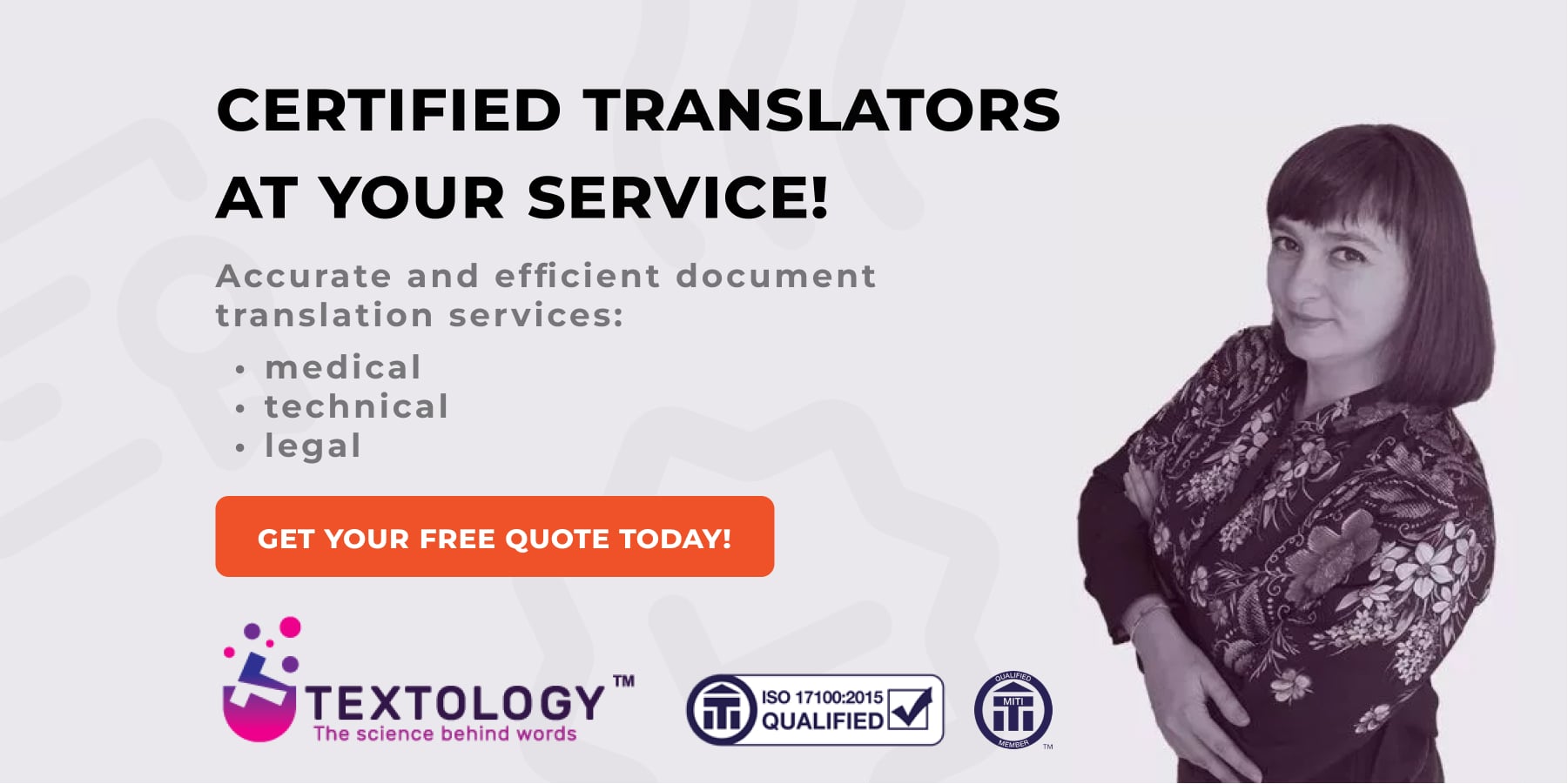
Legal translation is one of the biggest and the fastest growing segments of the translation industry. Translation companies and professional translators have more and more orders. They translate agreements, powers of attorney and many more documents. What are the characteristics of legal translations? Who requires them the most? Why is legal translation so important?
What’s the meaning of legal translation?
Legal translation means translating legal documents and paperwork, simply anything that people will use within the legal field. Pretty often people require their file or document to be translated. Legal translation services — this is something both private clients and law firms need. The key to a good legal translation is to accurately translate original documents from source languages to target languages.
Legal language — formal and precise language
Legal translations are legal texts written in legal language. It may sound cliché, but in fact, it tells us that it’s a specialist language, a formal language, and a very precise language. However, translating the “written word” is not everything. It happens that translators have to transcribe and translate video and audio files.
What are the characteristics of legal language?
Legal language is characterised by quite complex syntax, long sentences, multiple complex sentences and less punctuation than usual. The terminology always depends on the context. Interpreting is not allowed here. Legal translation has nothing in common with colloquial language.
Professionals have to avoid over translation. They need to know that adding redundant information which didn’t appear in a source text is not a good idea. And, on the other hand, they cannot miss any relevant information.
What kinds of legal documents require translation?
We have to keep in mind that legal translation is a kind of translation which private clients use rather rarely, not every day. That’s why not everyone realises how important translating legal documents is. Which particular legal documents have to be translated? Some of the most common legal documents are:
- Marriage certificates, divorce certificates
- Birth certificates
- Court transcripts
- Resolutions
- Immigration paperwork
- Powers of Attorney
- Service agreements, commercial agreements
- Contracts (business contracts) and other official documents.

What is the use of legal translations?
The most obvious usage of legal translation is when there’s a person who does not speak the legal or official language of a given area. We can imagine that the person moved abroad and is not fluent in the language of his/her new country. This person will certainly need to fill in many legal documents.
Actually, each person who deals with a contract written in a different language will need accurate translations. A person who has to deal with the legal systems and court systems of particular countries will need to use the services of legal translation because of the language barrier.
Litigation translations
Legal translations are in-demand by the legal industry. Law firms definitely benefit from legal translation services. They rely on professional translators because, without them, they won’t be able to understand multilingual individuals and communities. Legal firms simply cannot do without reliable litigation translations. Translation of documents in support of litigation is performed by sworn translators.
Business translation services
Business owners need convenient access to accurate translations of business documents and business contracts. That’s why they take advantage of business translation services. Translators provide business owners with employee contract translations, purchase agreements translations, commercial contract translations, etc.

Why is legal translation that important?
There is no other type of translation that would be more essential than legal translation. In this kind of translation, nothing is accidental. Translation has to be performed with a high degree of accuracy. To be more precise, professional legal translators have to maintain one hundred per cent accuracy.
There’s no space for errors
In legal translation, there is no room for linguistic mistakes and misinterpretations. Translators specialising in the legal field have to know the different meanings of some words and phrases. An inaccurate translation may lead to severe consequences.
It doesn’t take much to be mistaken, sometimes the meaning of the sentence changes because of errors in punctuation. Professional linguists have to have great language skills and knowledge of the laws, also laws from the target country.
The risk arising from poorly translated legal documents
Badly translated legal documents can be a big problem. Not only that, it can lead to legal issues. If somebody wants to move to a different country, it won’t be possible with badly translated immigration paperwork, which may not be accepted. Poorly translated paperwork can lead to negative legal implications. There’s also a matter of the money, because of having to file paperwork twice, it will be necessary to bear additional costs.
What makes it different from other kinds of translation?
It’s important to mention that there are a few technical differences between regular translation services and legal translation services. Legal translations have many terminologies that only make sense in the legal system. Legal translators should complete proper legal translation training before starting to work as a professional.
They should have knowledge of the source language and the target language. What’s more, they should have in-depth knowledge of at least two legal systems. Each legal translator has to know legal terminology, which is not that easy to learn. Not everyone can be a good legal translator. Learning takes time and energy and, what’s more, it requires a lot of skills.
The way legal documents are formatted
Another thing that makes a difference is that legal translators need to know how to format documents depending on the legal context. They cannot be formatted anyhow and submitted to the official body. It would be unacceptable. If we compare legal translations and regular translations, we will see a huge contrast between them because, in case of regular ones, there is no need to format the majority of source documents in a certain way.
Language and cultural nuances
A legal translator’s job is to go through the translation process looking after every single detail. Translators offering professional translation services have to convey meaning effectively. The purpose of the target content is not without significance either. A translator pays great attention to the location of the target group. The person responsible for legal translating adapts to where the target content will be used. Everything has some significance, specific terminology, grammar, style, register and local conventions.
Get the most out of legal translation
If you’re looking for professionals providing legal translation services, ones who can translate legal documents with the utmost precision, you will find them in London based Translation Agency TEXTOLOGY. The agency covers the legal translation field. It specialises not only in legal translations but also in technical and medical translations. Professional translators are there to help you. What’s more, TEXTOLOGY will calculate the estimate for you.

